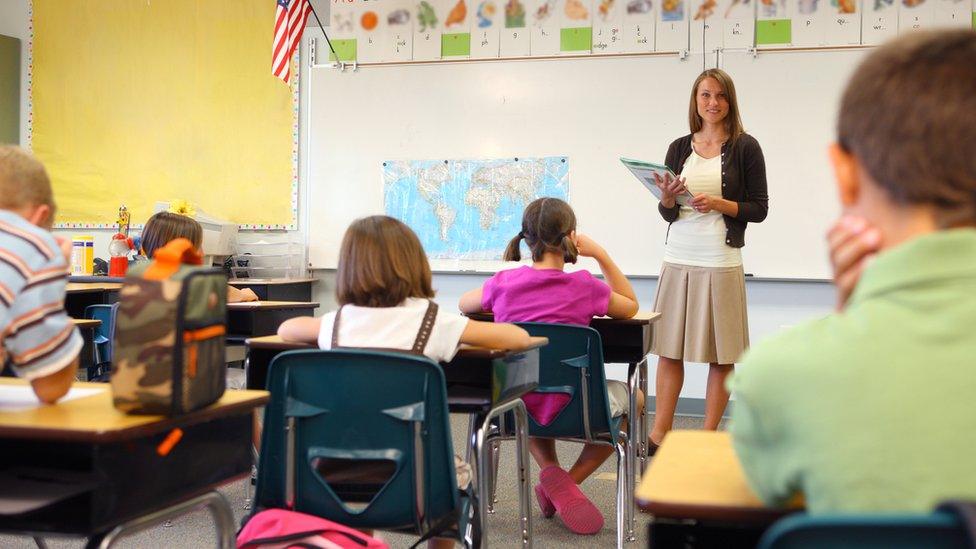Teacher training: A slow-burning fuse?
- Published

It's a simple question - whose job is it to make sure there are enough teachers in the classroom?
Your child's headteacher, along with the governing body, is at the sharp end of filling empty jobs.
So no wonder that at many schools heads tell me it's near the top of their worry list.
Despairing of the impact of traditional job ads, they are taking to social media and eyeing up talent they might poach from other schools.
Some are trying to grow their own, by recruiting likely candidates into teaching assistant posts and then coaxing them to train.
Others are sidling up to promising departing sixth formers to ask if they might want to come back to do some volunteering at the school while weighing up career options at university.
But ultimately the MPs on the influential Public Accounts Committee are in no doubt the buck stops with the government.
And yet their report, just published, describes a remarkable lack of reliable data to really tell officials what is going on.
Tracking training
Part of the problem has been the gulf between national statistics showing a very low vacancy level of 0.3% and what is happening on the ground in some parts of England.
When term starts there has to be someone in front of the class even if it is a temporary, or agency teacher.
So the vacancy statistic tells us nothing about who is teaching, how good they are or whether they're just a short-term solution.
It took some time for the government to stop pointing to this statistic, and admit that schools in some areas were experiencing something rather different.
There are more ways than ever before to train as a teacher in England, with an increasing shift to more being based in schools rather than universities.
They vary from the extremely niche, such as Troops to Teachers, to the main Schools Direct programme where a school can act as a training hub for its area.
It can be confusing to navigate if you're thinking of becoming a teacher and, for the last four years, not enough people have been recruited to meet the numbers needed.
The government is now planning to track trainees into the workforce, but for the moment there is little solid evidence of how the different training routes are working.
The same is true of the bursaries which are aimed at enticing graduates in shortage subjects into a teaching career.
As science graduates can go into well paid jobs, it's not unreasonable to think financial incentives might make a difference.
After all, a £30,000 tax-free bursary while you train is quite a good offer.
What the MPs are asking for is better evidence the public money being spent is delivering a long-term payback.
It's not that the government is doing nothing, rather that it's doing many things without, the MPs suggest, being able to prove what works best.
The government has promised to make sure there are enough talented teachers recruited, wherever they're needed.
With pupil numbers continuing to rise that's a big promise.
- Published10 June 2016
